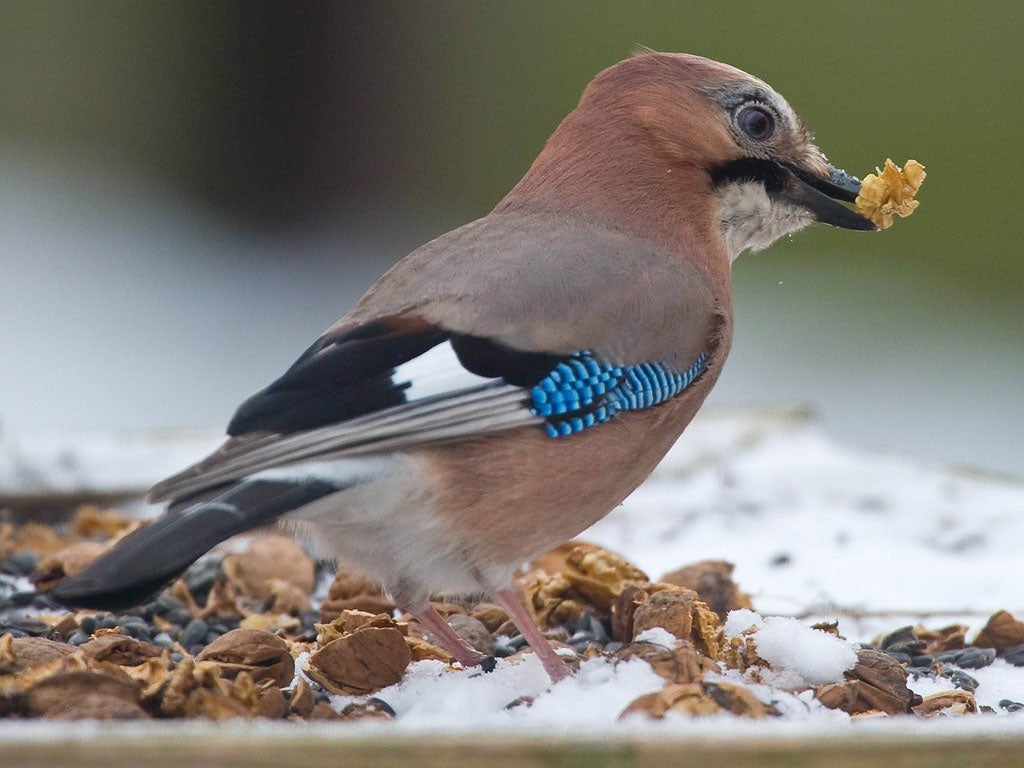
A poor acorn crop this year could be pushing jays into gardens in search of food, experts said today.
Jays, the most colourful member of the crow family, have been more visible than normal around the UK as they widen their search for food in the face of a poor autumn for acorns, the RSPB said.
Jays from Scandinavia and other parts of Europe could also be arriving in the country to join the UK population of the shy woodland bird, indicating that food sources may be scarce elsewhere, the wildlife charity said.
RSPB wildlife adviser Ben Andrew said: "With a blush pink body and flash of blue on the wings, jays are really attractive birds and it's hard to believe they are close relatives of crows, ravens, rooks and jackdaws, which are all black.
"Jays eat acorns, nuts and seeds at this time of year, and will create a little larder to see them through the winter by burying beech nuts, hazelnuts and acorns.
"But we have had reports from parts of the country of a poor acorn crop, which could be bringing these birds out into view as they make a more thorough search for food."
The RSPB is urging gardeners not to trim back berry, fruit and nut-bearing bushes and trees, which can provide food for birds and other wildlife in the autumn and shelter as the weather turns colder.
PA
Join our commenting forum
Join thought-provoking conversations, follow other Independent readers and see their replies
1Comments